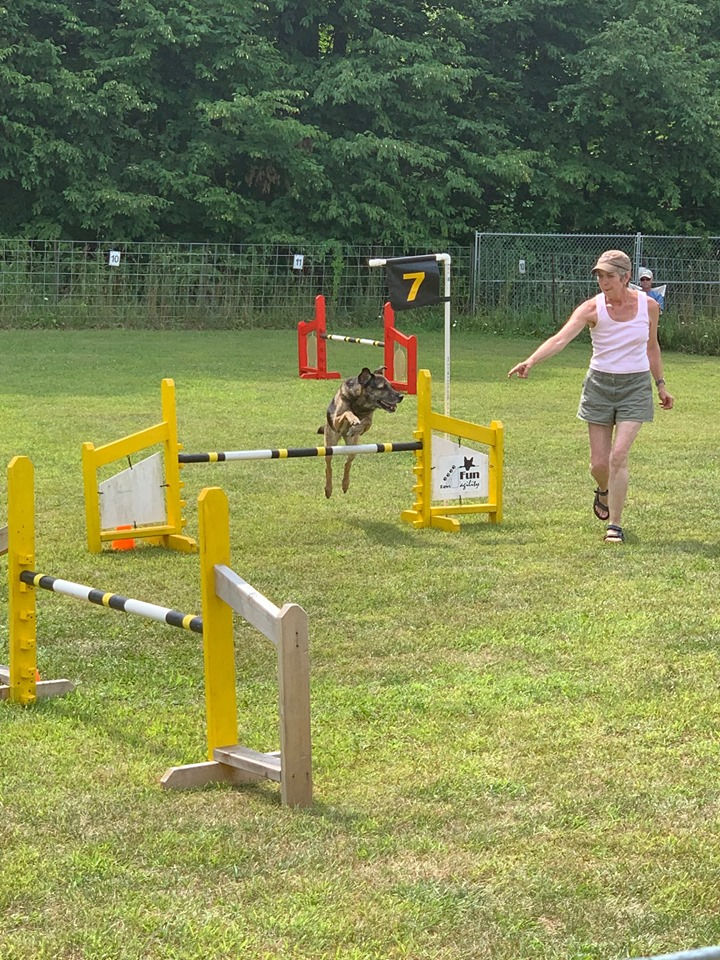Don't Give Up!
- Hotdiggity Dog Training
- Dec 16, 2021
- 3 min read
Updated: Feb 24, 2022

“I can’t take this anymore. She’s driving me crazy. I think I’m going to have to get rid of her.”
Oh, how I hate to hear those words. Behavioural problems are one of the main reasons dogs in North America are given up to shelters. People can’t handle the barking, chewing, biting, bolting, and peeing. And they don’t know how to fix things. All they know is the dog is making them feel miserable, so they solve the problem by getting rid of the dog. But older dogs with behavioural problems are not very adoptable and can end up euthanized.
That doesn’t have to happen. Many behavioural problems are relatively easy to fix with the help of a professional.
Dogs do not come into the world knowing what to chew and what to leave alone, or knowing to come when called, or not to pee in the kitchen. And they don’t learn these things from other dogs in the household or by growing up or “maturing”. They must be taught by their human owners.
The old method of teaching a dog how to behave appropriately in your home usually involved smacking her on the nose whenever she did something of which you disapproved. But dog training has come a long way in the last 20 years, and it now recognizes that teaching a dog what she can do, rather than what she can’t do, is a lot more effective.
Training should, ideally, start when the pup first comes into your home. Working with a blank slate is always easier than working with the emotional and mental baggage of an older rescue dog. But training either a young pup or an older dog is essentially the same – build trust, set boundaries, and provide lots of exercise!
Dogs learn to trust us when we are clear and consistent in our expectations. In other words, we don’t allow them to play tug with one of our wool socks one day, and then yell at them the next because they chewed a hole in our angora sweater. How are they to know that the wool in the sock is different than the wool in the sweater? But if we find them playing with a wool sock and redirect them onto a rubber Kong toy, then they will learn what they can play with and what is off limits.
No, it’s not being soft and wimpy to adopt this kind of training. It’s being understanding. Pups and rescue dogs coming into our homes do not know what the rules are. We have to teach them. It would be unfair to punish them for doing something they don’t understand they shouldn’t have done.
Signing up for puppy classes when you bring your pup home, or taking an older rescue to obedience classes, will help the two of you understand each other and bond. The class instructor can help you see your dog’s perspective on her world, and can provide you with suggestions for dealing with any specific issues that your dog has. With a sense of humour, lots of patience, and a pocketful of treats, your instructor can help get you through the “puppy piddles”, “terrible twos”, and “rescue remorse”.
But what if you’ve had the dog for a few months or a year or more, you haven’t gone to any obedience classes, and things have become progressively worse? Is it too late to fix things?
Absolutely not. It’s never too late. While it’s always easier to fix behaviour issues when they are in the early stages of forming, it’s always possible to change things for the better. But, unfortunately, some people think that the answer lies in physical force or intimidation. It doesn’t. The answer lies in understanding why the dog is behaving the way it is, how the owner’s behaviour has contributed to the situation (yes, sorry, it’s often not the dog!), and then figuring out how to change the dog’s mind about what she should do.
This takes the help of a professional. It also takes time and patience. There are very few quick humane fixes in dog training, but taking the time to do it right can save a life.
Dogs rely on us for everything – food, shelter, exercise, and companionship. So when things aren’t going well, and the dog ends up suffering, either emotionally or physically, we have a responsibility to give them a chance at rehabilitation. Don’t hesitate. Call a professional trainer. There’s no judgement there; only respect for having made the call.
.png)



Comments